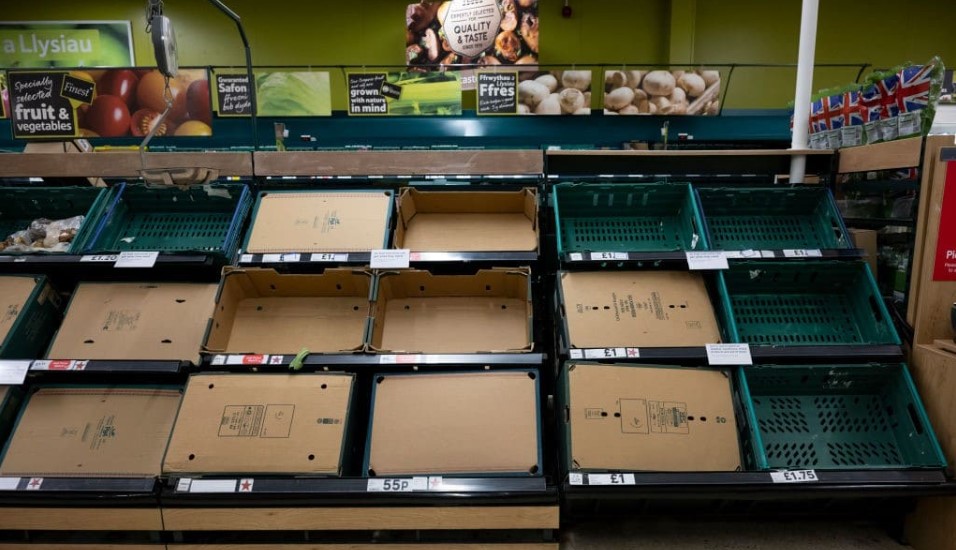The UK is facing food shortages and rising prices due to extreme weather linked to climate change, which has drastically impacted crop yields both locally and abroad.
Heavy rainfall has prevented the planting of key crops like potatoes, wheat, and vegetables during the crucial spring season. For those crops that were planted, the quality is poor, with some even rotting in the ground.
Additionally, the wet conditions have increased lamb mortality rates on UK hills and reduced milk production as dairy cows have been kept off grass.
Agricultural experts warn that the UK will rely more on imports, but similar adverse weather in Europe and droughts in Morocco could limit the availability of imported food, leading to higher supermarket prices.
Tom Bradshaw, president of the National Farmers’ Union, highlighted the collapse of markets due to poor growing conditions, predicting a significant rise in imports this year.

For instance, the wholesale price of potatoes has surged 60% year-on-year due to crop rot, compounded by a 10% reduction in planting area last year. Jack Ward from the British Growers Association expressed concerns about long-term potato supply and sustainability, citing high costs and low prices.
The difficulties extend to other crops as well. Carrots and parsnips are also in short supply due to waterlogged soils, pushing prices up. Martin Lines of the Nature-Friendly Farming Network noted that delays in planting and poor field conditions could lead to shortages of root vegetables and cereals.
In Europe, farmers face similar challenges, with France struggling with wheat production and Morocco’s drought affecting fruit and vegetable output. This has a direct impact on the UK, which relies on imports for a significant portion of its produce.
Amber Sawyer from the Energy and Climate Intelligence Unit warned that climate change is increasing the threat to food supply chains, emphasizing the need for rapid action to reduce emissions and transform food systems.
Dr. Paul Behrens from Leiden University echoed this urgency, urging a shift towards more plant-based diets to improve food system resilience.

